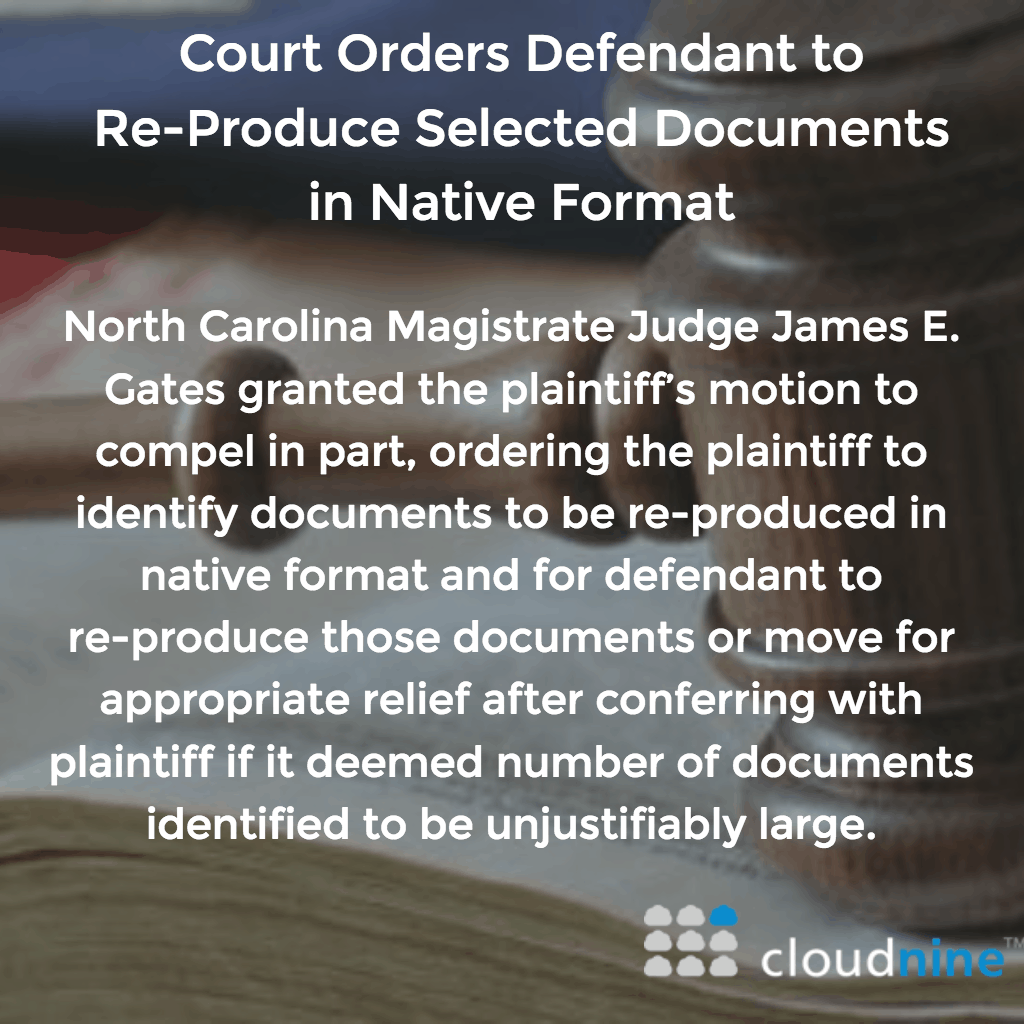ARCHIVED CONTENT
You are viewing ARCHIVED CONTENT released online between 1 April 2010 and 24 August 2018 or content that has been selectively archived and is no longer active. Content in this archive is NOT UPDATED, and links may not function.Extract from article by Doug Austin
In Spring v. Board of Trustees of Cape Fear Community College et. al., No. 7:15-CV-84-BO (E.D. N.C., Apr. 7, 2016), North Carolina Magistrate Judge James E. Gates, in ruling on several discovery disputes between the parties, granted the plaintiff’s motion to compel in part, ordering the plaintiff to identify documents to be re-produced in native format and for the defendant to re-produce those documents or move for appropriate relief after conferring with plaintiff if it deemed the number of documents identified to be unjustifiably large.
Case Background
In this breach of contract case over a forced resignation, the court entered a scheduling order in August 2015, adopting the parties’ proposed discovery plan which provided that “the requesting party is entitled to have electronic files produced in `native’ format, with accompanying metadata, upon request.” After the defendant produced documents in response to the plaintiff’s requests for production, the plaintiff sent a letter to defendants’ counsel in December 2015 addressing perceived deficiencies in the defendant’s production. The defendant produced some supplemental documents, but the plaintiff contended that the defendant’s production was still incomplete. The plaintiff filed a motion to compel in February 2016, seeking further production, as well as re-production of the originally produced documents in native format.






















